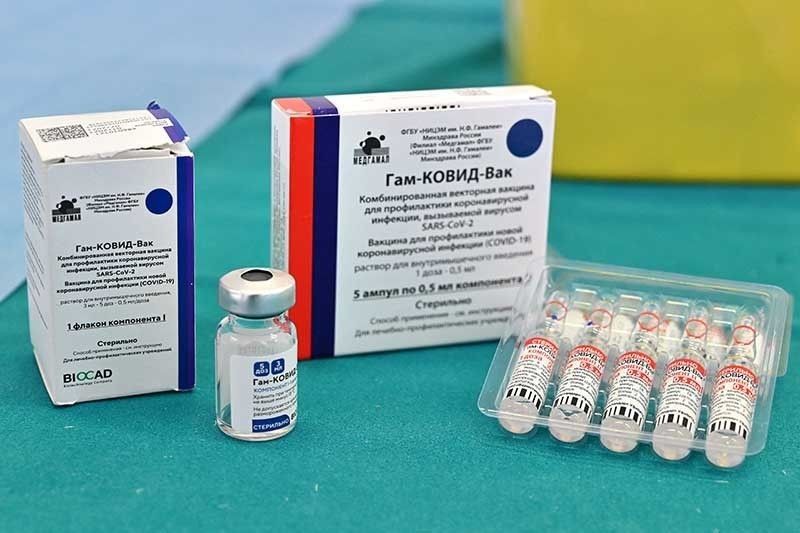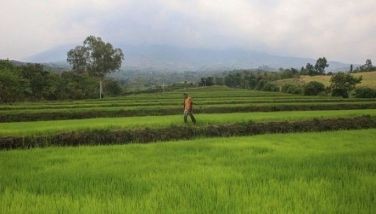Logistical challenges again delay arrival of first Sputnik V doses in Philippines

MANILA, Philippines — Logistical challenges again hampered the delivery of the first 15,000 doses of the Russian-made COVID-19 vaccine Sputnik V, which were supposed to arrive in the Philippines Wednesday evening.
Malacañang confirmed Wednesday that logistical challenges, specifically the lack of direct flights from Russia and the difficulty of keeping the shots in sub-zero temperatures, has delayed the arrival of the jabs.
The government now expects the vaccines to arrive in May instead, but assured that vaccine czar Carlito Galvez has “taken steps to address these challenges.”
This is the second time that the arrival of the vaccine doses has been pushed back. The shots were originally scheduled to land on April 25, but its delivery was pushed back to April 28, before Malacañang confirmed that this also would not push through.
ABS-CBN News first reported that the scheduled arrival of the first doses of Sputnik V was cancelled, citing airline sources who told them that the shots were not loaded on the Qatar Air flight scheduled to arrive 11 p.m. on Wednesday.
Russia approved the Gamaleya Institute’s Sputnik V vaccine in August 2020, becoming the first country to clear a jab for COVID-19.
In March, the Philippines' Food and Drug Administration granted emergency use authorization for Sputnik V, paving the way for the shots to be administered once they arrive.
The Department of Health, however, said that not all local governments will receive the vaccine due to stringent handling and storage requirements, among them the need to be stored at temperatures not exceeding -18 degrees Celsius.
Sputnik V is taken in two doses, and has a 91.6% efficacy rate. Results from a peer-reviewed late-stage trial in The Lancet medical journal showed too that it is completely protective against severe forms of COVID-19.
Galvez has said that most of the Philippines’ vaccine supply would consist of the China-made Coronavac, with 4.5 million doses, and Sputnik V, with 4 million doses.
He also said that the country is negotiating for 20 million doses of the Russian-made jab.
Government data shows that since the start of the vaccination drive in March, 237,992 people have been fully vaccinated in the Philippines, while 1.5 million have received their first vaccine dose.
While the government touts that the Philippines is the third country in Southeast Asia with the most number of doses administered, it neglects to say that only around 1% of the population have been given a vaccine and has been administering shots at a snail’s pace owing partly to the scarce supply of jabs.
The national government has so far secured two official deals for COVID-19 vaccine supplies in the Philippines, one with Chinese pharmaceutical company Sinovac and another with the Serum Institute of India.
Watch this space for bite-sized developments on the vaccines in the Philippines. (Main image by Markus Spiske via Unsplash)
Health Officer-in-Charge Maria Rosario Vergeire says the general population may now get their second booster jab.
"We're just waiting for the release of implementing guidelines, then we'll start rolling out our second booster for the general population," she says. — Gaea Katreena Cabico
Amid questions on vaccines being administered, the Department of Health assures the public all doses are safe and effective as the “process of extending shelf life goes through thorough stability studies.”
“The government ensures that every vaccine that is injected with an extended shelf life has gone through studies, and is still safe and effective against COVID-19,” it adds.
Government must increase vaccination capacity across the Philippines in anticipation of a surge of COVID-19 cases caused by the Omicron variant of the corona virus, Sen. Risa Hontiveros says.
She says local government units and the private sector can work together to put up more vaccination centers and deploy more vaccination teams to get more people inoculated against COVID-19.
"The active COVID cases have nearly doubled in three days. The positivity rate is almost four times the ceiling set by the World Health Organization. Huwag na nating hintayin na sobrang lumala pa ang sitwasyon bago tayo gumawa ng paraan para mapabilis ang ating pagbabakuna."
FDA chief Eric Domingo says that its agency has given emergency approval for the use of the Pfizer-BioNTech COVID-19 vaccine for children ages 5 to 11.
The United States immunized around 900,000 children aged five-to-11 against Covid in the first week the Pfizer vaccine was authorized for them, a White House official says Wednesday.
Roughly 700,000 more have made appointments at pharmacies, White House Covid coordinator Jeff Zients tells reporters.
"The program is just getting up to full strength," he says, adding most of the shots were given in the last couple of days alone. — AFP
- Latest
- Trending
































